-
 Bitcoin
Bitcoin $117500
2.15% -
 Ethereum
Ethereum $3911
6.19% -
 XRP
XRP $3.316
10.79% -
 Tether USDt
Tether USDt $1.000
0.01% -
 BNB
BNB $787.2
2.24% -
 Solana
Solana $175.2
4.15% -
 USDC
USDC $0.9999
0.00% -
 Dogecoin
Dogecoin $0.2225
8.40% -
 TRON
TRON $0.3383
0.28% -
 Cardano
Cardano $0.7868
6.02% -
 Stellar
Stellar $0.4382
9.34% -
 Hyperliquid
Hyperliquid $40.92
7.56% -
 Sui
Sui $3.764
7.63% -
 Chainlink
Chainlink $18.48
10.66% -
 Bitcoin Cash
Bitcoin Cash $582.1
1.88% -
 Hedera
Hedera $0.2601
6.30% -
 Avalanche
Avalanche $23.33
4.94% -
 Ethena USDe
Ethena USDe $1.001
0.02% -
 Litecoin
Litecoin $122.3
2.04% -
 UNUS SED LEO
UNUS SED LEO $8.969
-0.27% -
 Toncoin
Toncoin $3.339
0.86% -
 Shiba Inu
Shiba Inu $0.00001287
4.30% -
 Uniswap
Uniswap $10.43
7.38% -
 Polkadot
Polkadot $3.861
5.08% -
 Dai
Dai $1.000
0.02% -
 Bitget Token
Bitget Token $4.513
3.41% -
 Monero
Monero $267.7
-6.18% -
 Cronos
Cronos $0.1499
4.14% -
 Pepe
Pepe $0.00001110
5.15% -
 Aave
Aave $284.9
8.28%
What are the order types for Gemini contracts? What scenarios are they suitable for?
Gemini offers various order types like market, limit, stop, and trailing stop orders, each suited for different trading scenarios to enhance strategy execution.
May 03, 2025 at 10:42 pm
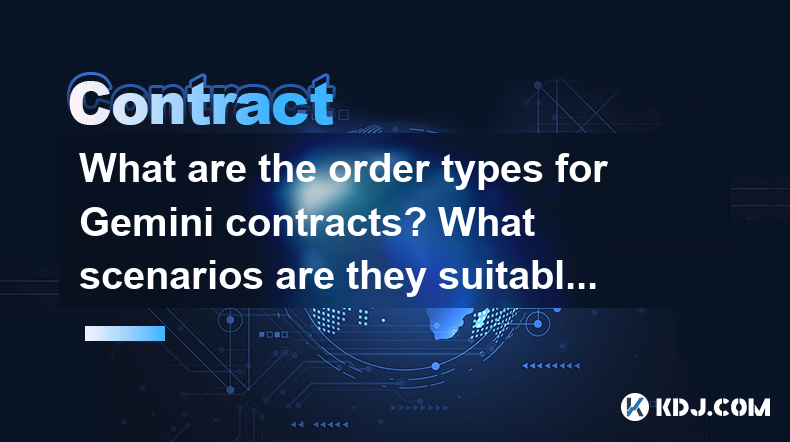
Gemini, a well-known cryptocurrency exchange, offers a variety of order types for trading contracts. Understanding these order types and their suitable scenarios can help traders execute their strategies more effectively. This article will delve into the different order types available on Gemini for contracts and explore the scenarios in which they are most beneficial.
Market Orders
Market orders are the most straightforward type of order available on Gemini. When you place a market order, you are instructing the exchange to buy or sell a contract at the best available price in the market at that moment.
- Suitable Scenarios: Market orders are best used when you need to execute a trade quickly. For instance, if you believe the price of a contract is about to move significantly and you want to enter or exit a position immediately, a market order ensures that your trade is executed without delay. However, be aware that in highly volatile markets, the price at which your order is filled might differ from the last price you saw.
Limit Orders
Limit orders allow you to specify the price at which you want to buy or sell a contract. If the market reaches your specified price, the order will be executed.
- Suitable Scenarios: Limit orders are ideal when you have a specific price in mind and are willing to wait for the market to reach that price. For example, if you believe a contract is undervalued and want to buy it at a certain price, you can set a buy limit order. Similarly, if you want to sell a contract at a specific price, a sell limit order can be used. Limit orders give you more control over the price at which your trade is executed but do not guarantee that the order will be filled if the market does not reach your specified price.
Stop Orders
Stop orders, also known as stop-loss orders, are used to limit potential losses. A stop order becomes a market order once the contract's price reaches a specified stop price.
- Suitable Scenarios: Stop orders are particularly useful for managing risk. If you are holding a long position and the price starts to fall, you can set a stop order to sell your contract if it reaches a certain price, thus limiting your losses. Conversely, if you are shorting a contract and the price starts to rise, a stop order can be set to buy back the contract at a specified price to cap your losses. Stop orders are essential for traders who want to protect their investments from significant adverse price movements.
Stop-Limit Orders
Stop-limit orders combine the features of stop orders and limit orders. When the contract's price reaches the stop price, the order becomes a limit order, which is then executed at the specified limit price or better.
- Suitable Scenarios: Stop-limit orders are useful when you want to control both the price at which your order is triggered and the price at which it is executed. For example, if you are holding a long position and want to sell if the price drops to a certain level, you can set a stop-limit order with a stop price and a limit price. This ensures that your order is only executed within a specific price range, providing more control over the execution price but also increasing the risk that the order may not be filled if the market moves too quickly.
Trailing Stop Orders
Trailing stop orders are designed to protect profits by allowing the stop price to move with the market. The stop price is set at a fixed percentage or dollar amount below the market price for a long position, or above the market price for a short position.
- Suitable Scenarios: Trailing stop orders are ideal for traders who want to lock in profits while allowing a position to continue to gain value. For instance, if you are holding a long position and the price is rising, a trailing stop order can be set to sell if the price drops by a certain percentage from its peak. This allows you to capture gains while still protecting against a significant downturn. Trailing stop orders are particularly useful in trending markets where the price is moving in your favor.
Fill-or-Kill Orders
Fill-or-kill orders are orders that must be executed immediately in their entirety or not at all. If the entire order cannot be filled at the specified price, it is canceled.
- Suitable Scenarios: Fill-or-kill orders are suitable when you need to buy or sell a large quantity of contracts and want to ensure that the entire order is executed at the specified price. For example, if you are a large institutional trader and need to execute a significant trade without impacting the market, a fill-or-kill order can be used to ensure that your order is filled completely or not at all. This type of order is less common in retail trading but can be useful in specific situations.
Immediate-or-Cancel Orders
Immediate-or-cancel orders are similar to fill-or-kill orders but allow for partial fills. Any portion of the order that cannot be filled immediately is canceled.
- Suitable Scenarios: Immediate-or-cancel orders are useful when you want to execute a trade as quickly as possible but are willing to accept partial fills. For instance, if you want to buy a certain number of contracts and are willing to take whatever quantity is available at the current market price, an immediate-or-cancel order can be used. This type of order is beneficial in fast-moving markets where you want to act quickly but are flexible about the quantity filled.
Good-Till-Canceled Orders
Good-till-canceled orders remain active until they are either filled or canceled by the trader. These orders can remain in the market for an extended period, allowing you to set a price and wait for the market to reach it.
- Suitable Scenarios: Good-till-canceled orders are ideal for traders who have a long-term view and are willing to wait for the market to reach their desired price. For example, if you believe a contract is undervalued and want to buy it at a specific price, you can set a good-till-canceled buy limit order. This type of order is useful for traders who are not in a hurry to execute their trades and are willing to wait for the right opportunity.
Day Orders
Day orders are valid only for the trading day on which they are placed. If the order is not filled by the end of the trading day, it is automatically canceled.
- Suitable Scenarios: Day orders are suitable for traders who want to execute a trade within a single trading day. For instance, if you are a day trader and want to buy or sell a contract at a specific price during the day, a day order can be used. This type of order is useful for traders who have a short-term trading strategy and do not want their orders to remain active beyond the current trading day.
Frequently Asked Questions
Q: Can I use multiple order types simultaneously on Gemini?
A: Yes, Gemini allows you to use multiple order types simultaneously. For example, you can have a limit order and a stop order active at the same time for the same contract. This allows you to implement complex trading strategies that involve different entry and exit points.
Q: How do I cancel an order on Gemini?
A: To cancel an order on Gemini, follow these steps:
- Log in to your Gemini account.
- Navigate to the "Orders" section.
- Find the order you want to cancel in the list of active orders.
- Click on the "Cancel" button next to the order.
- Confirm the cancellation if prompted.
Q: Are there any fees associated with different order types on Gemini?
A: Gemini charges trading fees based on the type of order and the volume of your trades. Market orders, limit orders, and stop orders are subject to the standard trading fees. However, more complex order types like stop-limit and trailing stop orders may incur additional fees. It's important to review Gemini's fee schedule to understand the costs associated with each order type.
Q: Can I modify an existing order on Gemini?
A: Yes, you can modify an existing order on Gemini. To do so, follow these steps:
- Log in to your Gemini account.
- Go to the "Orders" section.
- Locate the order you want to modify.
- Click on the "Modify" button next to the order.
- Adjust the order parameters as needed (e.g., price, quantity).
- Confirm the modifications if prompted.
Disclaimer:info@kdj.com
The information provided is not trading advice. kdj.com does not assume any responsibility for any investments made based on the information provided in this article. Cryptocurrencies are highly volatile and it is highly recommended that you invest with caution after thorough research!
If you believe that the content used on this website infringes your copyright, please contact us immediately (info@kdj.com) and we will delete it promptly.
- Tron's Sell-Off Spurs Altcoin Shift: What's Next for TRX?
- 2025-08-08 08:30:12
- Sleep Token's US Takeover: Thornhill Rides the 'Even In Arcadia' Wave
- 2025-08-08 08:30:12
- FTT Token's Wild Ride: Creditor Repayments vs. Market Drop - A New Yorker's Take
- 2025-08-08 07:10:12
- Floki Crypto Price Prediction: Riding the Robinhood Rocket or Just a Meme?
- 2025-08-08 07:15:12
- EigenLayer, Restaking, and Ethereum: Navigating the Hype and the Hazards
- 2025-08-08 06:30:12
- Super Bowl 59: Jon Batiste to Jazz Up the National Anthem
- 2025-08-08 06:30:12
Related knowledge
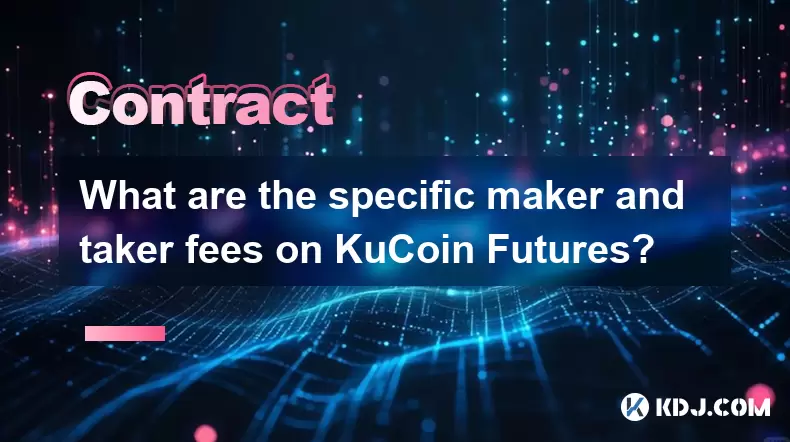
What are the specific maker and taker fees on KuCoin Futures?
Aug 08,2025 at 08:28am
Understanding Maker and Taker Fees on KuCoin FuturesWhen trading on KuCoin Futures, users encounter two primary types of fees: maker fees and taker fe...
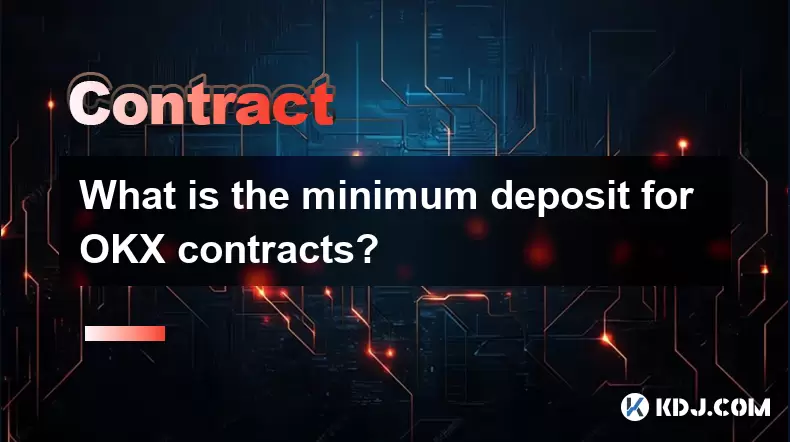
What is the minimum deposit for OKX contracts?
Aug 08,2025 at 07:00am
Understanding OKX Contract Trading BasicsOKX is one of the leading cryptocurrency derivatives exchanges, offering a wide range of perpetual and future...
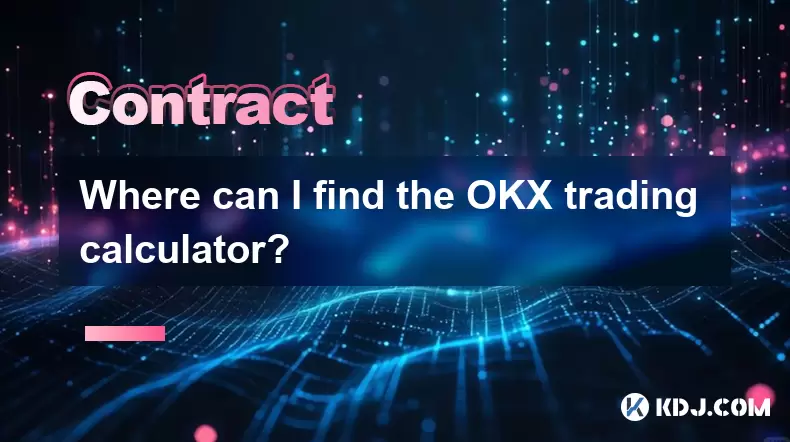
Where can I find the OKX trading calculator?
Aug 08,2025 at 07:49am
Understanding the OKX Trading Calculator FunctionalityThe OKX trading calculator is a powerful analytical tool designed to assist traders in estimatin...
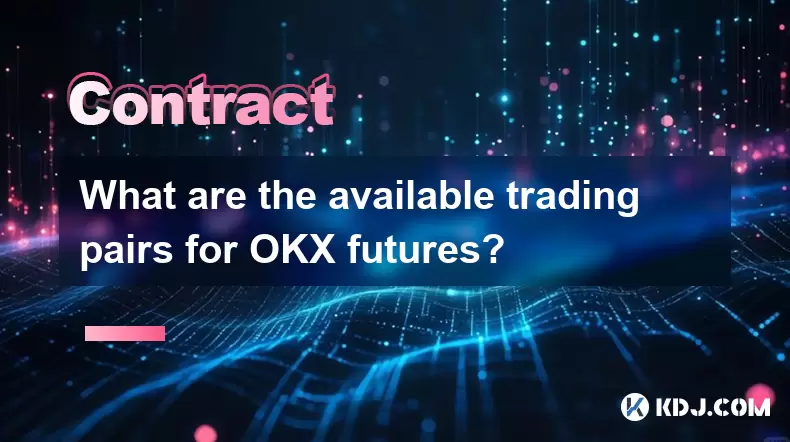
What are the available trading pairs for OKX futures?
Aug 08,2025 at 08:49am
Understanding OKX Futures Trading PairsOKX is one of the leading cryptocurrency derivatives exchanges, offering a wide range of futures trading pairs ...
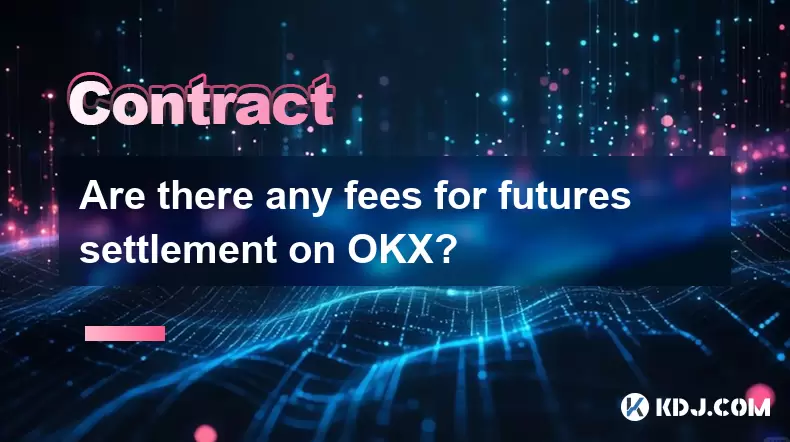
Are there any fees for futures settlement on OKX?
Aug 08,2025 at 05:35am
Understanding Futures Settlement on OKXFutures settlement on OKX refers to the process by which open futures contracts are automatically closed or mar...
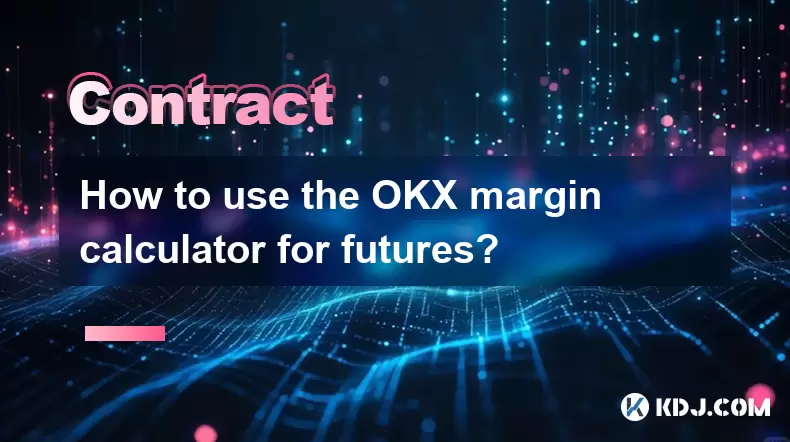
How to use the OKX margin calculator for futures?
Aug 08,2025 at 05:15am
Understanding the OKX Margin Calculator for FuturesThe OKX margin calculator is a specialized tool designed to assist traders in estimating the requir...

What are the specific maker and taker fees on KuCoin Futures?
Aug 08,2025 at 08:28am
Understanding Maker and Taker Fees on KuCoin FuturesWhen trading on KuCoin Futures, users encounter two primary types of fees: maker fees and taker fe...

What is the minimum deposit for OKX contracts?
Aug 08,2025 at 07:00am
Understanding OKX Contract Trading BasicsOKX is one of the leading cryptocurrency derivatives exchanges, offering a wide range of perpetual and future...

Where can I find the OKX trading calculator?
Aug 08,2025 at 07:49am
Understanding the OKX Trading Calculator FunctionalityThe OKX trading calculator is a powerful analytical tool designed to assist traders in estimatin...

What are the available trading pairs for OKX futures?
Aug 08,2025 at 08:49am
Understanding OKX Futures Trading PairsOKX is one of the leading cryptocurrency derivatives exchanges, offering a wide range of futures trading pairs ...

Are there any fees for futures settlement on OKX?
Aug 08,2025 at 05:35am
Understanding Futures Settlement on OKXFutures settlement on OKX refers to the process by which open futures contracts are automatically closed or mar...

How to use the OKX margin calculator for futures?
Aug 08,2025 at 05:15am
Understanding the OKX Margin Calculator for FuturesThe OKX margin calculator is a specialized tool designed to assist traders in estimating the requir...
See all articles

























































































